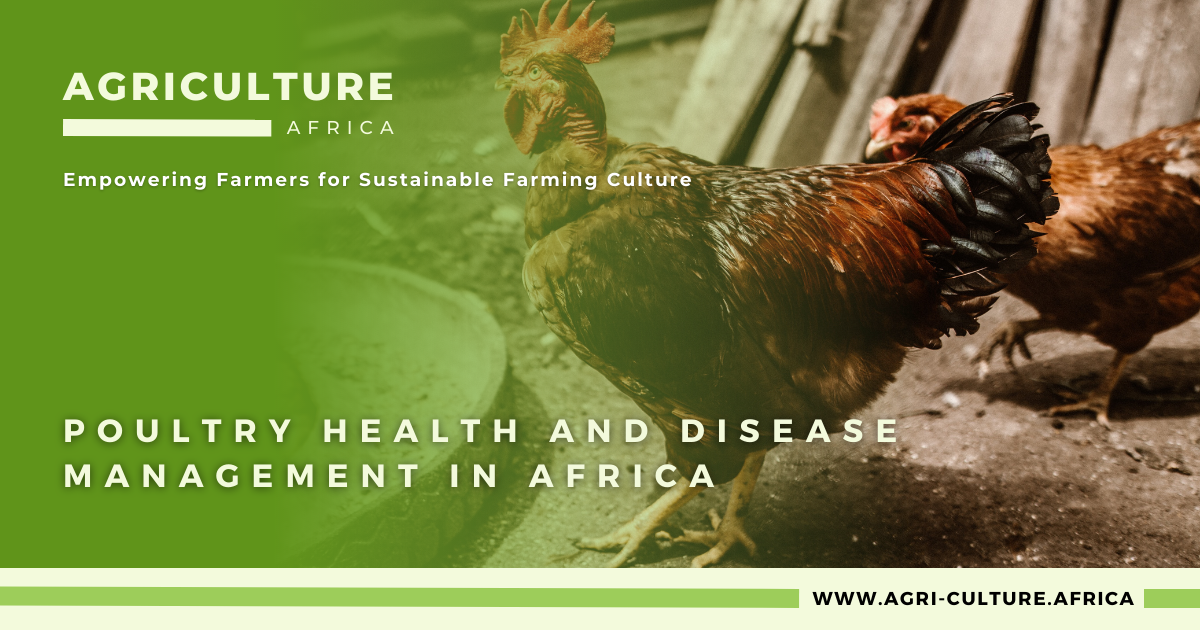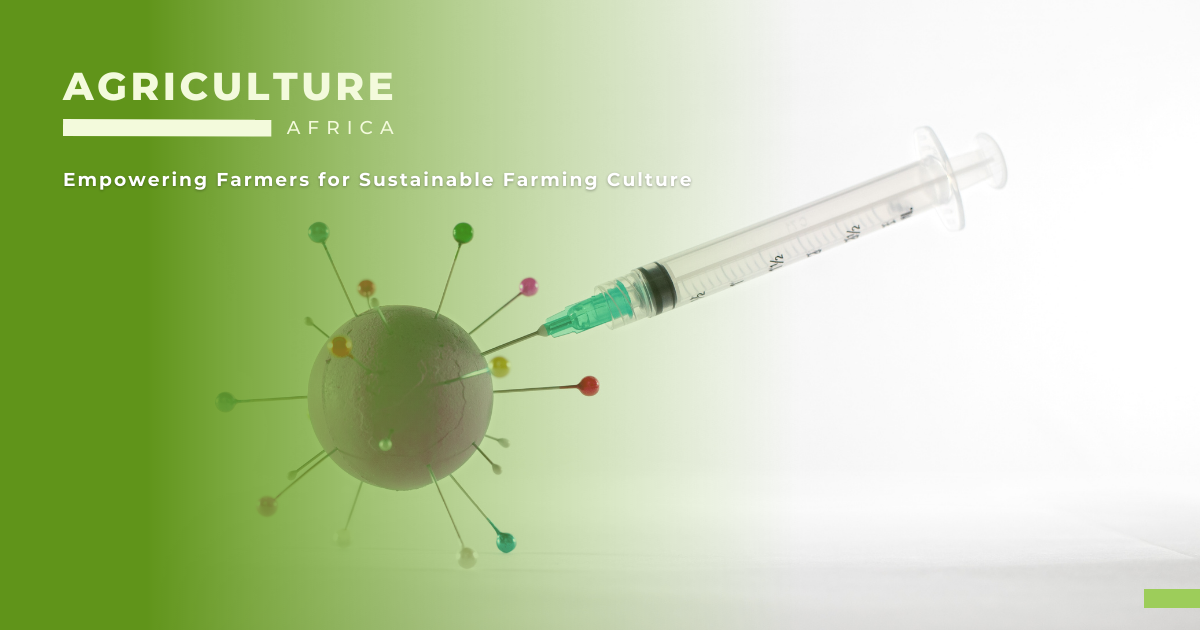
Empowering African Farmers for Sustainable Farming Culture
In Africa, poultry health is critical because it contributes significantly to food security and the economy. However, the industry faces a number of challenges, including diseases that can result in substantial losses for farmers. Understanding poultry health and disease management is therefore critical for farmers to prevent and treat common illnesses affecting poultry in Africa.
This article discusses common poultry diseases in Africa as well as prevention and treatment strategies such as vaccination programmes, biosecurity measures, and antibiotic use. Farmers can ensure the health and well-being of their poultry, prevent disease outbreaks, and maximise profits by implementing these measures.

Newcastle Disease (ND) is a viral infection that affects both wild and domestic birds. The disease is prevalent throughout Africa and causes significant losses in the poultry industry. ND symptoms include respiratory distress, nervous symptoms, and diarrhoea. Vaccination can control the disease, and farmers are encouraged to vaccinate their birds on a regular basis.
Avian influenza (AI), also known as bird flu, is a viral disease that primarily affects birds and poultry. Humans can contract the disease, resulting in severe illness and death. Several African countries have reported AI outbreaks, with significant economic consequences. Biosecurity measures, such as restricting access to farms and markets and properly disposing of dead birds, can help prevent the disease from spreading.
Gumboro disease, also known as Infectious Bursal Disease (IBD), is a viral disease that affects young chickens. The disease is common in Africa and can result in significant losses for poultry farmers. IBD symptoms include diarrhoea, reduced feed intake, and weight loss. Vaccination is the most effective method of disease control, and farmers are encouraged to vaccinate their birds at a young age.
The bacterial disease Fowl Typhoid affects chickens and other poultry. The disease is common in Africa and can result in significant economic losses for the industry. Fowl Typhoid symptoms include fever, loss of appetite, and decreased egg production. Antibiotics are used in treatment, and farmers are encouraged to practise good biosecurity measures to prevent disease spread.
The bacterial disease Infectious Coryza affects chickens and other poultry. The disease is common in Africa and can result in significant losses for poultry farmers. Infectious Coryza symptoms include nasal discharge, facial swelling, and decreased egg production. Antibiotics are used in treatment, and farmers are encouraged to practise good biosecurity measures to prevent disease spread.

Vaccination is a reliable method of preventing the spread of various poultry diseases. Vaccination programmes should begin at a young age, and farmers should follow the recommended vaccination schedules for their birds. All poultry farmers should get vaccinated against Newcastle Disease, Infectious Bursal Disease, and Fowl Pox.
Biosecurity measures can aid in the prevention of the spread of poultry diseases. Farmers are encouraged to limit access to their farms and markets, dispose of dead birds properly, and implement disinfection protocols. Proper sanitation of feed and water sources, as well as the use of clean and disinfected equipment, can all aid in the prevention of disease transmission.
Antibiotics should only be used when absolutely necessary and under the supervision of a veterinarian. Antibiotic overuse can result in the development of antibiotic-resistant bacteria, which can endanger both animal and human health. Farmers should adhere to recommended withdrawal periods before consuming poultry products and avoid using antibiotics as a replacement for good management practises.
Maintaining good hygiene practices in poultry farms can prevent the spread of diseases. Farmers should regularly clean and disinfect the premises, provide clean water and feed, and prevent overcrowding.
Farmers should quarantine new birds before introducing them to their flocks to prevent the spread of diseases.
Your donation fuels change! Help Agriculture Culture in Africa empower farmers with resources, training, and access to innovation. Together, we can revolutionize African agriculture.
Empowering Sustainable Growth and Innovation in African Agriculture
Sign up to our newsletter